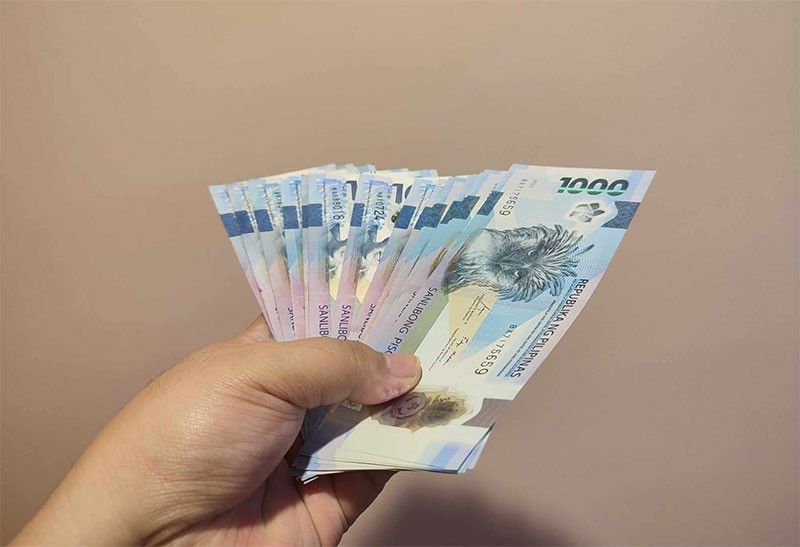Investments will make the people feel economic progress

State of the Nation Addresses are often a balance between the past and the future, especially if it is the third such speech of a president into a six-year term. True enough, President Ferdinand Marcos Jr. 's SONA last Monday was a reckoning of what had been accomplished by his administration and what initiatives had been started so far.
At the same time, it was an identification of the direction he intended to take for the remainder of his administration and was a rallying cry for the whole Philippines to come together to steer the nation forward, toward all our goals and aspirations.
Out of numerous concerns and challenges that the country is facing, the president did a respectable job of capturing the most important issues that must be attended to. But there were some themes that reflected the concern of a greater percentage of the population, because they pertain to sustained economic growth that would eventually contribute to the benefit of all Filipinos.
The economy, as many of us are aware, is largely driven by consumption. This economic make-up has its merits but also its weaknesses, as we saw clearly during the pandemic when mobility restrictions hampered consumption, disrupted supply chains, drove the prices of goods and services higher, and halted economic activity leading to a loss of jobs.
It only showed how vulnerable we still are to developments in the external environment, things that are beyond our control. We saw how swift and how substantial the damage was, to the detriment of the economy and of the people.
It is evident that something must be done to make the Philippine economy more resilient to factors outside of our control. In this case, the pursuit of investment-driven economic growth looks like an ideal course of action that will create more livelihood opportunities, provide income security, strengthen economic resilience, promote long-term stability and uplift the quality of life of the Filipino people.
To his credit, Marcos reported to the people that he had secured significant investment pledges. He has been building strong relations with partners and friends in the international community, securing such pledges during his visits.
In his SONA he announced that there are around 100 projects worth P3 trillion in the pipeline, in key sectors like renewable energy, digital infrastructure, food security, and manufacturing. Moreover, the trilateral summit between the United States, Japan, and the Philippines is the most promising, with the announcement of the Luzon Corridor, which will connect Subic Bay, Clark, Manila and Batangas and facilitate strategic investments along the area.
But it is one thing to talk about attracting investments, and quite another actually seeing investors pour their capital here, build, hire Filipinos, and start operating. There are many factors that affect investors’ decision to locate in a particular country or region.
Specifically, a 2023 Kearney study found that political instability and the regulatory environment were major deterrents for investment in emerging markets like the Philippines, with 38% and 27% of business leaders citing these factors, respectively.
Sending a similar message is a Stratbase-commissioned survey conducted by Pulse Asia Research Inc. last March 2024, where Filipinos identified the most significant factors hindering foreign investment in the country. The main concerns are complicated rules and regulations like red tape, as well as political instability, with 56% of Filipinos highlighting these issues.
Thus, parallel to efforts to acknowledge the importance of investment-led growth and obtaining pledges from would-be investors during road shows and other visits, the Philippines needs to work harder at institutionalizing a regulatory environment that is conducive to investments and businesses. Specifically, reforms in the capital market and the implementation of green lanes would be a concrete step toward this aim.
**
Prospects remain promising for the economy. Multilateral organizations such as the Asian Development Bank and the International Monetary Fund have forecasted the economy to grow at a high rate. The ASEAN+3 Macroeconomic Research Office has even identified the Philippines as the fastest-growing economy in Southeast Asia. Moreover, S&P Global projected that the Philippine economy will reach a trillion dollars by 2033.
But in his SONA, the president himself said that big terms and glowing statistics – to say, for instance, that the Philippine economy is the fastest growing in the region, and even the total value of investment pledges from other countries – do not mean a thing if the people cannot feel any improvement in their daily lives.
In fact, in a survey conducted by the Social Weather Stations in June 2024, around 46% of Filipino families rated themselves as food-poor.
And indeed, in June 2024, the Philippine Statistics Authority reported that while the headline inflation rate in June 2024 eased to 3.7%, food inflation rose to 6.5%.
A Stratbase-commissioned survey by Pulse Asia showed that Filipinos remain preoccupied with urgent national concerns such as controlling inflation (72%), increasing the pay of workers (44%), and reducing poverty (32%). As a result, in the days leading to the third SONA, the people wanted to hear about the President’s plans to control inflation (57%), improve the national economy (36%) and create more jobs and livelihood opportunities (35%).
A proposed strategy to help address the cross-sectoral burden of inflation is to rationalize or even removing the VAT and other taxes on power and energy which is an indispensable expense for all households and businesses at all levels.
Potential investors in manufacturing industries that can potentially create millions of quality jobs and drive a radiating wave of economic growth through the linked businesses of each successful locator will need affordable electricity and fuels to viably and competitively operate.
A strategic selection of industries that may be given these tax exemptions should be explored with the goal of fostering the growth on new enterprises which would eventually generate government revenues from income taxes from operations, employees, and the VAT on consumption generated by its ecosystem of benefiting stakeholders.
Going by these articulated concerns, the administration must have a firm grasp of the things it needs to focus on in its remaining years. Ensuring lower prices of basic goods, preventing price fluctuations, and creating – and keeping – jobs hinges on the government’s ability to attract long-term, sustainable investments that would ensure economic security, not only for a few segments or select areas in the archipelago, but for all.
Rupert Paul Manhit is the COO and managing director of think tank Stratbase Group. He is the executive director of Philippine Trade Foundation (Phils Inc.)
- Latest





























